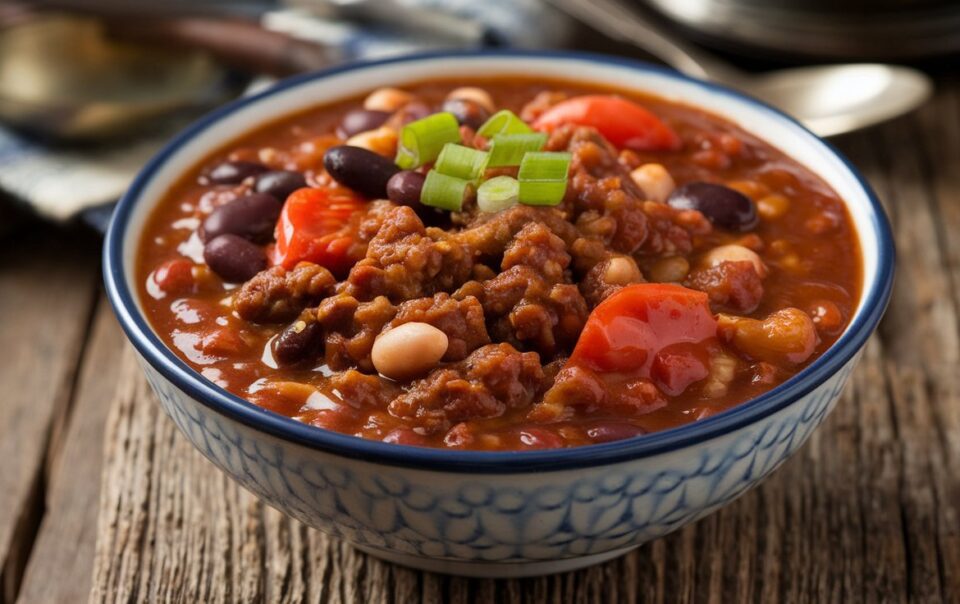
Please note: This website contains affiliate links. As an Amazon Associate, we earn from qualifying purchases at no additional cost to you.
You’ve started taking Ozempic / Wegovy, your appetite has taken a nosedive, and the pounds are finally coming off. It’s exciting—but let’s talk about what you’re eating (or not eating). With your appetite on vacation, it’s easy to skimp on the essentials, and one of the biggest things people overlook is protein.
Protein isn’t just for bodybuilders or Instagram-worthy smoothie bowls. It’s the secret sauce to maintaining muscle, staying full, and keeping your metabolism humming along as you shed weight. Let’s dive into why protein is so important, how much you need, and how to make sure you’re getting enough without feeling like it’s a chore.
What Makes Protein So Important When Taking Semaglutide, Ozempic or Wegovy?
Protein is like the Swiss Army knife of nutrition—it does a little bit of everything:
- Muscle Maintenance: When you lose weight, it’s not just fat that disappears; muscle can take a hit, too. Protein helps preserve muscle mass, which is key for keeping your metabolism running efficiently.
- Satiety Superstar: Protein keeps you feeling full longer, making it easier to resist the siren call of snacks between meals.
- Boosting Metabolism: Your body burns more calories digesting protein than it does carbs or fat. That’s right—eating protein literally helps you burn calories.
Here’s the catch: Semaglutide (aka Wegovy and Ozempic) suppresses your appetite, which is great for cutting calories, but it also means you might not naturally eat enough protein. That’s why being intentional about your intake is crucial.
How Much Protein Do You Really Need?
The amount of protein you need depends on factors like your weight, activity level, and overall goals. The recommended daily allowance (RDA):
- Aim for 0.8–1.2 grams of protein per kilogram of body weight.
- For someone who weighs 150 pounds (68 kg), that’s about 56–80 grams of protein daily.
- For someone who weighs 200 pounds (91 kg), you’re looking at 73–110 grams daily.
Many medical experts believe that the ideal protein levels are roughly double the RDA – especially for those who are trying to build muscle and/or lose weight. So that would be about or about 100 to 120 grams of protein for the average person.
AUTHOR NOTE: My primary care doctor and registered dietician both recommended that I eat one (1) gram of protein per my ideal body weight. So if my ideal weight is 150 lbs, then I should try to get in 120 to 150 grams daily.
As someone who doesn’t like to eat a lot of meat, I REALLY struggled to get 100+ grams in each day, but I’ve found several proteins I love and now it seems easy. Thanks to the GLP-1 meds (Wegovy) and the increased protein in my diet, I’m full for hours longer and don’t seem to have all the crazy sugar and carb cravings that I used to.
I’m not telling you that you should follow this plan, just that recommended amount of protein can vary based on age, weight, activity levels and other factors so be sure to talk with your healthcare provider about what would be best for your unique situation.
The Best Sources of Protein for Semaglutide Users
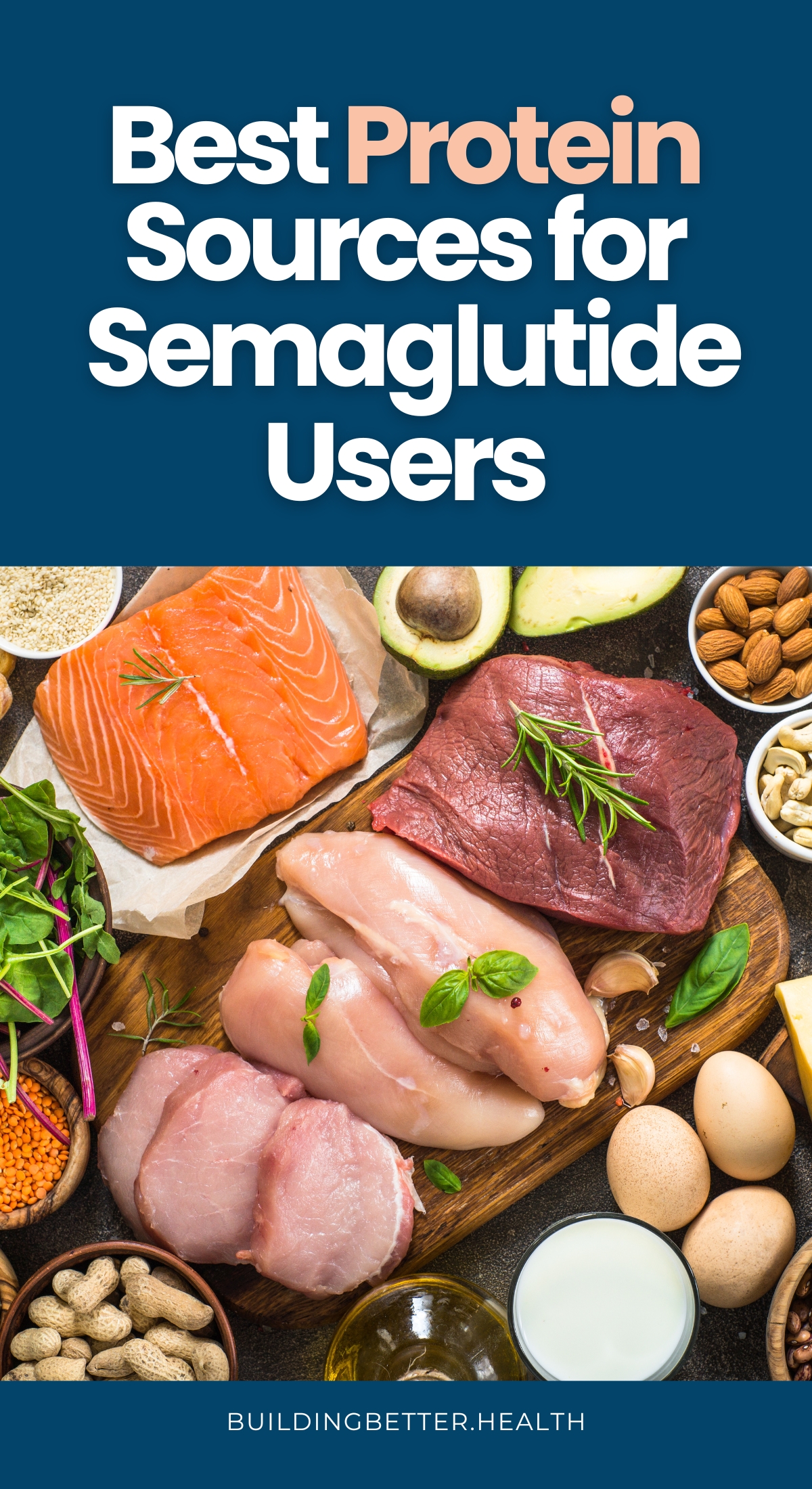
The great thing about protein is that there’s something for everyone, whether you’re a meat lover, vegetarian, or somewhere in between.
Lean Proteins
- Chicken breast, turkey, lean cuts of beef or pork, and fish like salmon or cod.
- Eggs and egg whites are also fantastic, versatile options.
Plant-Based Options
- Beans, lentils, chickpeas, quinoa, edamame, and tofu.
- These are excellent for vegetarians or anyone wanting to mix things up.
Dairy Products
- Greek yogurt, cottage cheese, and low-fat cheeses are protein-packed and easy to add to meals.
- For those who avoid dairy, plant-based milk with added protein (like pea or soy milk) can be a great alternative.
Snacks & Supplements
- Protein shakes, powders and bars are convenient for on-the-go nutrition. Look for options with minimal added sugar. A few popular protein powders are: Naked Pea Protein Powder, Vega and Orgain Organic (all are vegan/plant-based).
- Nuts, seeds, and nut butters offer protein along with healthy fats, making them a double-duty snack.
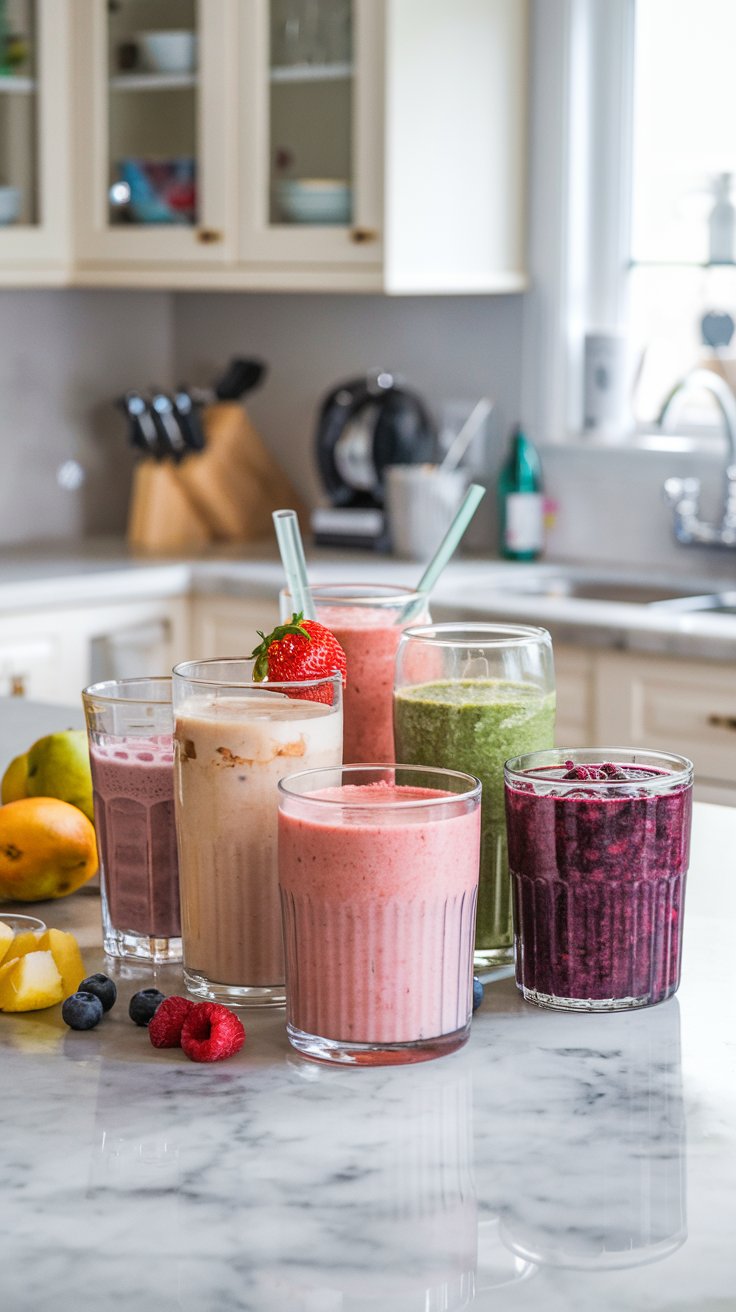
Tips to Boost Protein Intake Without Overeating
- Start Your Day Strong | High-protein breakfasts like scrambled eggs with spinach or Greek yogurt with a sprinkle of granola set the tone for the day.
- Sneak It In | Add a scoop of protein powder to your morning smoothie or stir it into oatmeal.
- Pair It Right | Combine proteins with fiber-rich foods like veggies or whole grains to feel satisfied longer. For example, grilled chicken with quinoa and roasted vegetables makes for a balanced and filling meal.
- Plan Ahead | Meal prep is your best friend. Cook a batch of grilled chicken, roasted chickpeas, or hard-boiled eggs so you always have protein on hand.
Common Protein Myths (Debunked!)
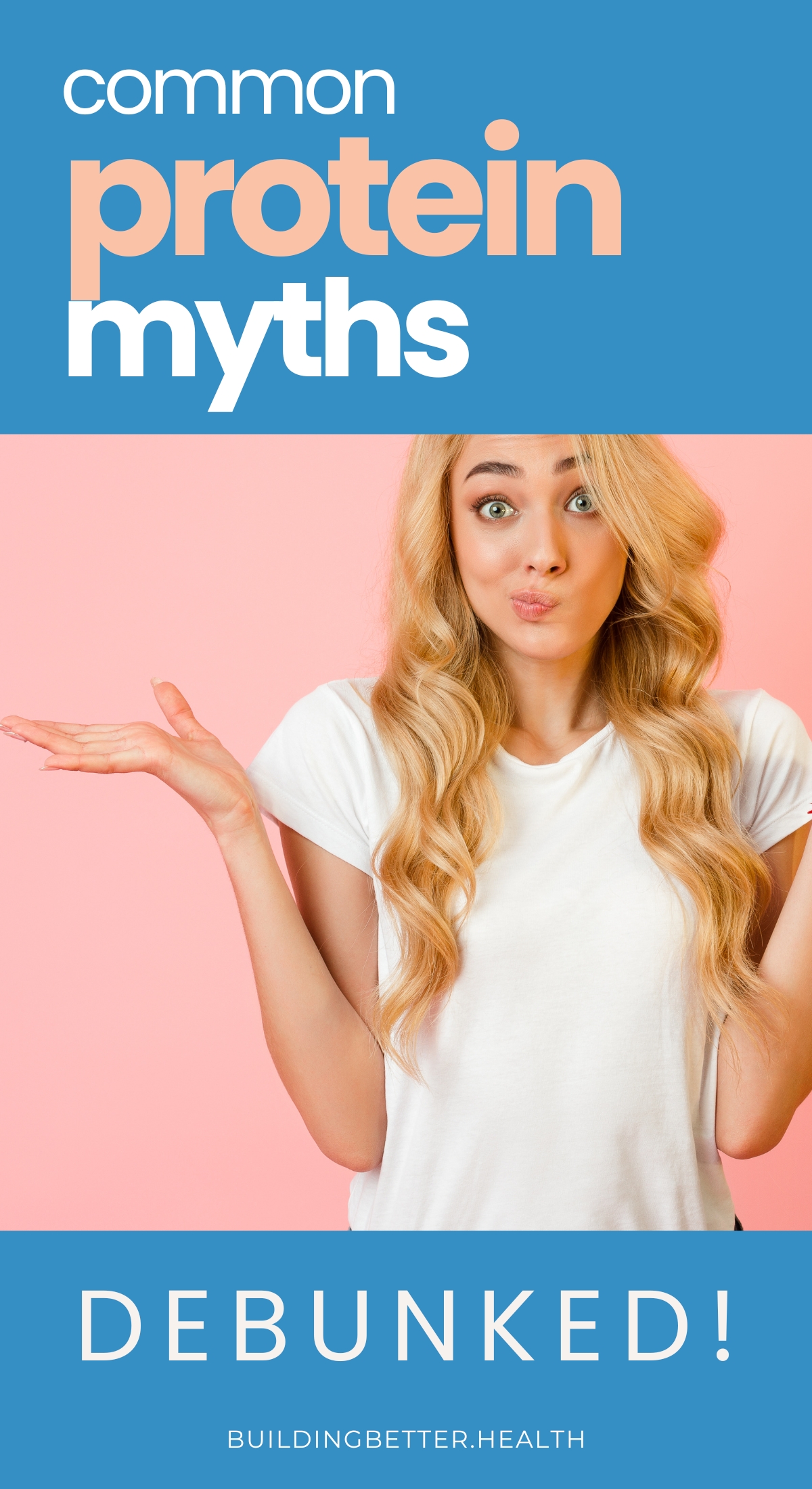
“Eating too much protein will make me bulk up.”
Unless you’re hitting the gym with a bodybuilder’s workout routine, you’re not going to bulk up just from eating protein. It’s about preserving lean muscle, not building it like The Hulk.
“Plant-based proteins aren’t as good as animal proteins.”
While animal proteins are often considered “complete,” combining plant-based options (like rice and beans) gives you all the essential amino acids you need.
“Protein shakes and powders are only for bodybuilders.”
Protein shakes can be a quick, easy way to meet your needs, no biceps required.
FAQs About Protein and Semaglutide / Ozempic
Q: What happens if I don’t eat enough protein on Semaglutide?
A: You may lose muscle mass along with fat, which can slow your metabolism and leave you feeling weaker. And if you go off the medication, you’ll be faced with a worse metabolism and can gain the weight back much easier.
Q: Can I rely on protein shakes or bars to meet my daily needs?
A: Yes, but they shouldn’t be your only source. Whole food options like lean meats, beans, and dairy provide additional nutrients.
Q: How do I get enough protein on a vegetarian or vegan diet?
A: Focus on plant-based proteins like lentils, chickpeas, tofu, tempeh, quinoa, and fortified plant milks. There are also lots of vegan protein powders you can use to ensure that you are getting enough each day. We really love Naked Pea Protein Powder, Vega and Orgain Organic (both vegan)
Q: Does timing matter for protein intake?
A: While it’s best to spread your protein throughout the day, don’t stress too much about exact timing. The key is consistency.
Conclusion
Protein isn’t just a sidekick—it’s a star player in your Semaglutide journey. By making protein a priority, you’re giving your body the tools it needs to preserve muscle, boost metabolism, and keep you feeling full and energized.
The best part? Eating enough protein doesn’t have to be complicated. With so many delicious options, you can easily hit your goals while enjoying every bite. So grab that chicken breast or whip up a lentil curry—your body will thank you!
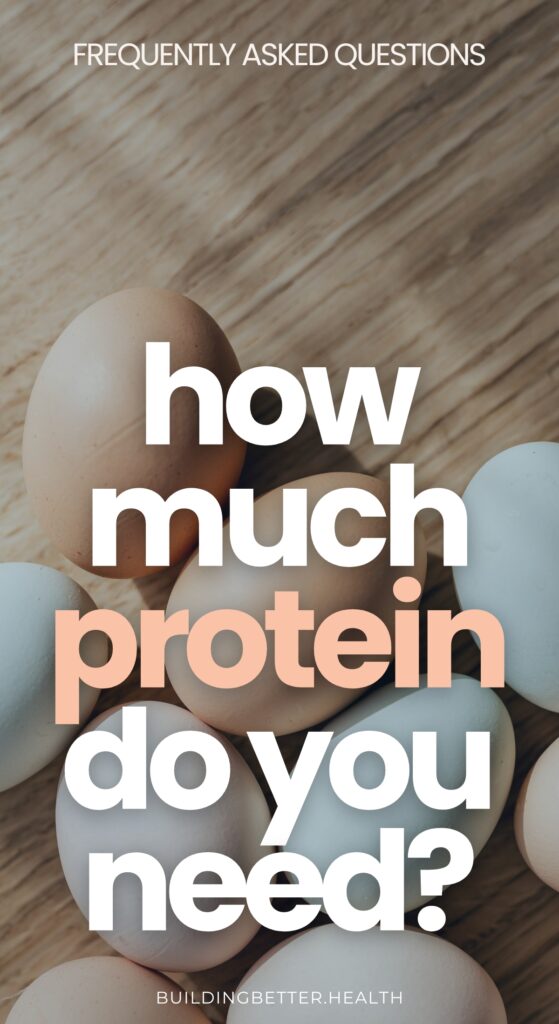
Resources
- Protein Recommendations from Harvard Medical
- Recommendations on daily requirements from Cleveland Clinic
- Is 100 grams of protein daily safe?
Please note: This website contains affiliate links. As an Amazon Associate, we earn from qualifying purchases at no additional cost to you.



